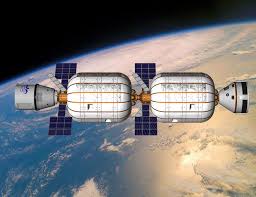
Breaking News
 Why are young women attracted to older men? Men, watch and learn!
Why are young women attracted to older men? Men, watch and learn!
 Voter Fraud Is About To Explode: ITS BLOWING UP IN THEIR FACES thanks to Trump and Tulsi
Voter Fraud Is About To Explode: ITS BLOWING UP IN THEIR FACES thanks to Trump and Tulsi
 Ahead of US-Iran Talks, Netanyahu Tells Cabinet 'Conditions' Could Lead to Regime Change...
Ahead of US-Iran Talks, Netanyahu Tells Cabinet 'Conditions' Could Lead to Regime Change...
 SpaceX Authorized to Increase High Speed Internet Download Speeds 5X Through 2026
SpaceX Authorized to Increase High Speed Internet Download Speeds 5X Through 2026
Top Tech News
 How underwater 3D printing could soon transform maritime construction
How underwater 3D printing could soon transform maritime construction
 Smart soldering iron packs a camera to show you what you're doing
Smart soldering iron packs a camera to show you what you're doing
 Look, no hands: Flying umbrella follows user through the rain
Look, no hands: Flying umbrella follows user through the rain
 Critical Linux Warning: 800,000 Devices Are EXPOSED
Critical Linux Warning: 800,000 Devices Are EXPOSED
 'Brave New World': IVF Company's Eugenics Tool Lets Couples Pick 'Best' Baby, Di
'Brave New World': IVF Company's Eugenics Tool Lets Couples Pick 'Best' Baby, Di
 The smartphone just fired a warning shot at the camera industry.
The smartphone just fired a warning shot at the camera industry.
 A revolutionary breakthrough in dental science is changing how we fight tooth decay
A revolutionary breakthrough in dental science is changing how we fight tooth decay
 Docan Energy "Panda": 32kWh for $2,530!
Docan Energy "Panda": 32kWh for $2,530!
 Rugged phone with multi-day battery life doubles as a 1080p projector
Rugged phone with multi-day battery life doubles as a 1080p projector
 4 Sisters Invent Electric Tractor with Mom and Dad and it's Selling in 5 Countries
4 Sisters Invent Electric Tractor with Mom and Dad and it's Selling in 5 Countries
Bigelow Aerospace Launches New Company to Operate Private Space Stations

A company that builds big, inflatable space habitats has launched a new venture that will market and operate these structures in Earth orbit and beyond.
Today (Feb. 20), entrepreneur Robert Bigelow announced the creation of Bigelow Space Operations (BSO), which will manage the private space stations being built by his Nevada-based manufacturing company, Bigelow Aerospace.
BSO will also conduct in-depth market research, to gauge the demand for these space stations and identify the most promising customer bases. [Bigelow Aerospace's Inflatable Space Station Idea (Photos)]
"We intend to spend millions of dollars this year in drilling down, hopefully, to a conclusion one way or the other as to what the global market is going to look like," Bigelow said in a teleconference with reporters today. "We expect to finish that investigation by the end of this year."
BSO was officially established last year, but it started hiring only last month, Bigelow said. The company has already filled a number of key posts, including chief operating officer and general counsel, and intends to hire three dozen to four dozen people this year. Eventually, 400 to 500 people will probably work for BSO, the entrepreneur said.
Bigelow's space-station plans are based on soft-bodied modules that launch in a compressed configuration but expand greatly once they reach space. Such inflatables offer much more habitable volume per unit launch mass, and better radiation shielding, compared with traditional aluminum modules, company representatives have stressed.
Read More...



